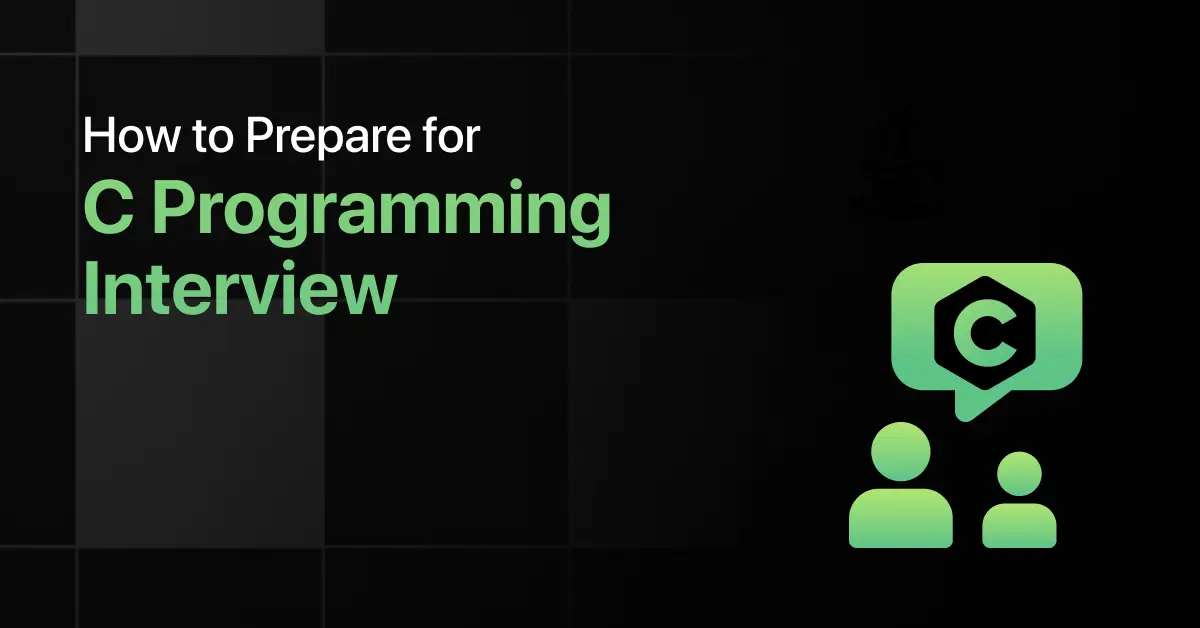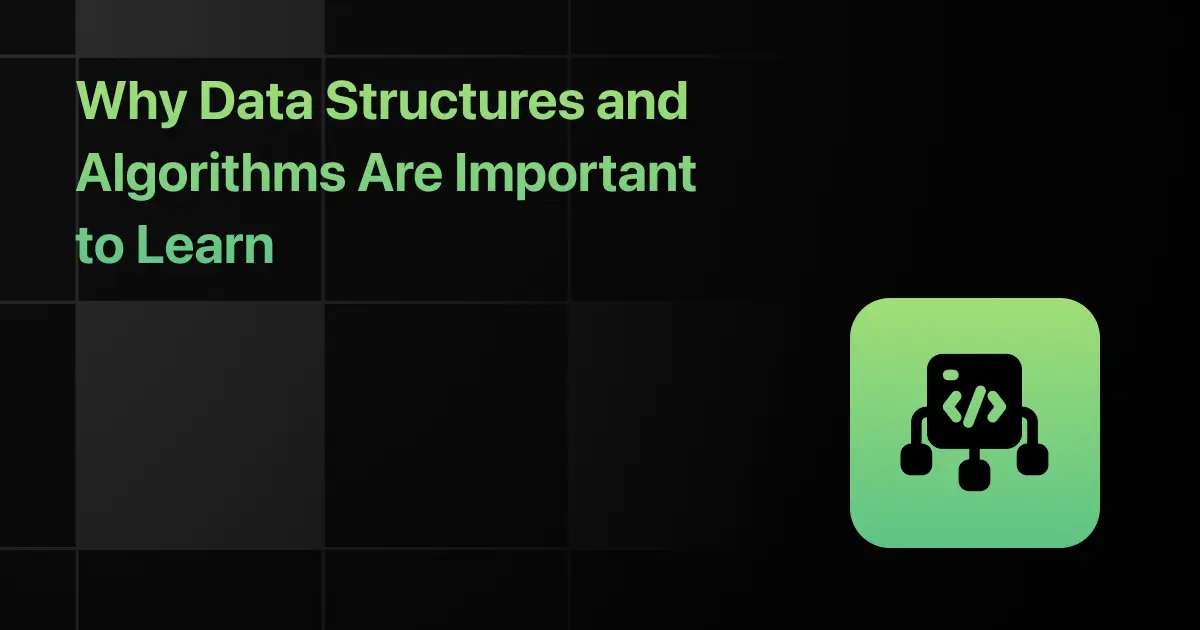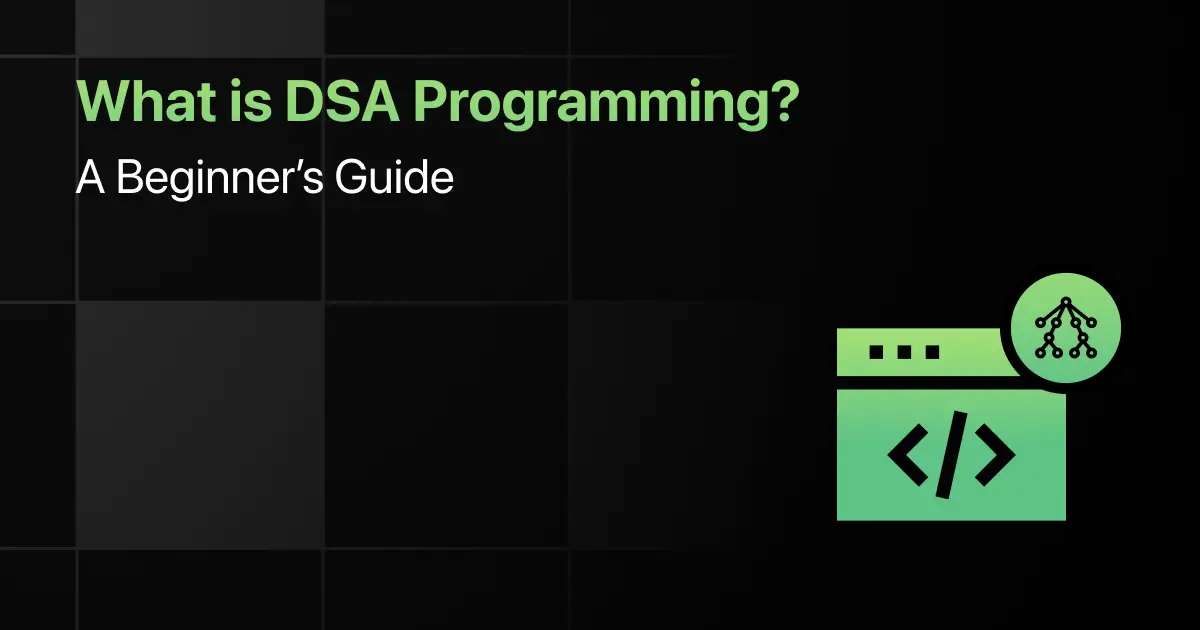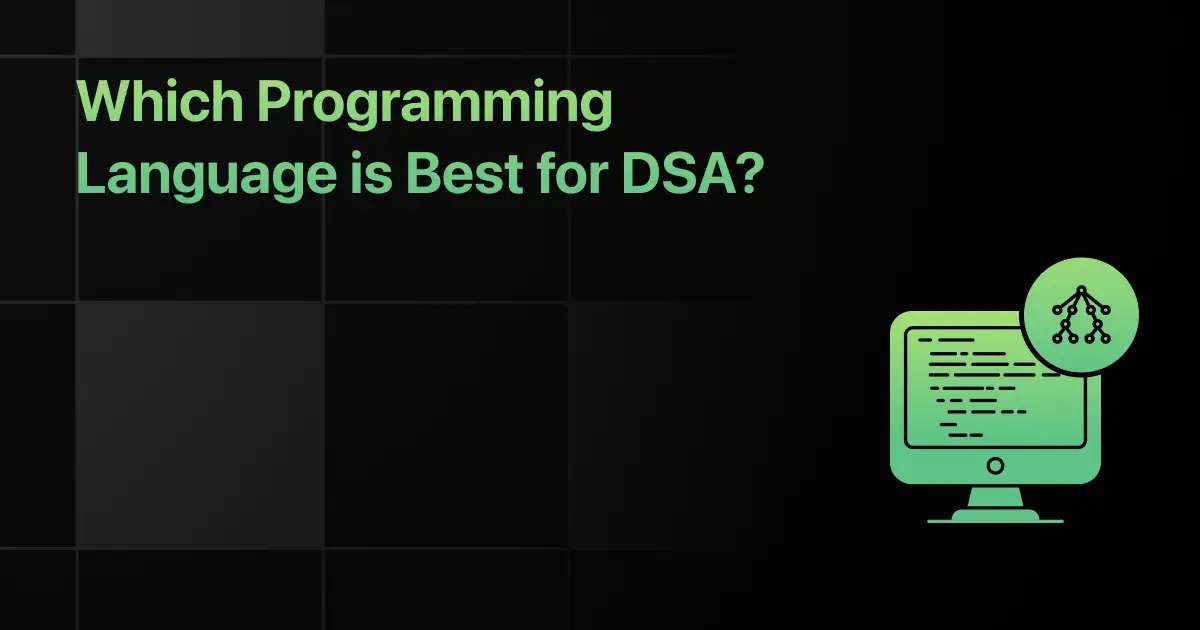How to Prepare for C Programming Interview

Are you preparing for a C programming interview but not sure where to begin?
Many candidates struggle to balance revising C fundamentals, practicing coding problems, and preparing for common technical questions.
This blog will guide you with a structured approach to C interview preparation, covering key concepts, coding practice, and practical tips to help you perform confidently.
C Programming Interview Preparation Guide
Preparing for a C programming interview requires a solid grasp of core language concepts like pointers, memory management, arrays, and functions. Interviewers often test not only your coding skills but also your ability to explain how C interacts with memory and hardware at a lower level.
To prepare effectively, it helps to combine theory with consistent coding practice and also learn from real interview experiences, which show the type of C programming questions companies frequently ask.
1. Master the Core Fundamentals
A strong understanding of C programming fundamentals is the foundation for doing well in interviews. Most interviewers begin by testing your knowledge of core language concepts before moving on to coding challenges. Key areas to focus on include:
- Data types and operators
- Control structures (if-else, switch, loops)
- Functions and parameter passing
- Arrays and strings
- Pointers and pointer arithmetic
- Dynamic memory allocation (malloc, calloc, free)
- Structures, unions, and enums
- File handling operations
- Storage classes and scope of variables
- Preprocessor directives (macros, header files)
- Thorough preparation in these areas ensures you can answer both conceptual and implementation-based questions confidently.
2. Practice Coding Problems Consistently
C interviews often involve hands-on coding tasks, so consistent practice is critical. Focus on solving problems involving arrays, strings, recursion, searching, sorting, and pointer-based challenges.
Work on debugging exercises as well, since C programs often test your ability to identify and fix logical or runtime errors. Practicing regularly with C Programming Exercises will help you gain speed, improve accuracy, and build confidence in solving problems under time constraints.
3. Prepare for Commonly Asked Interview Questions
Apart from coding practice, interviewers frequently ask conceptual and scenario-based questions to test your depth of understanding.
Reviewing commonly asked questions can give you clarity on the expected knowledge. Some examples include:
- What are the key features of C programming?
- Explain the difference between call by value and call by reference.
- What are pointers and how are they used in C?
- What is the difference between malloc() and calloc()?
- How does dynamic memory allocation work in C?
- What is the difference between structure and union?
- Explain the use of storage classes in C.
- How is recursion implemented in C?
- What is the difference between stack memory and heap memory?
- What are macros in C and how are they different from functions?
- How do you pass an array to a function in C?
- What is the difference between global and static variables?
- Explain how file handling is done in C.
- What is pointer arithmetic and where is it used?
- What are the advantages and limitations of C programming?
Going through these questions systematically will prepare you for both theory-based and practical interview rounds.
4. Preparation Tips
A structured plan helps you make the most of your C programming preparation. Start with a revision schedule that covers the fundamentals, then move on to solving coding exercises and debugging problems daily.
Take mock interviews to get comfortable with explaining your code and thought process under time limits. Build small C projects, such as a student record management system, file-based applications, or simple calculators, to showcase your practical knowledge.
Finally, reserve the last day for revising key topics like pointers, memory allocation, and commonly asked questions instead of learning new concepts, so you stay confident and focused.
Final Words
Preparing for a C programming interview requires balancing conceptual knowledge with regular coding practice. With a structured study plan and consistent effort, you can approach both technical and problem-solving rounds with confidence.
Explore More Interview Preparation for
- Python
- Software Developer
- C++
- Machine Learning
- Full Stack Developer
- Front End Developer
- .NET
- C#
- PHP
- Angular
- Node JS
- JavaScript
- Java
- DBMS
- SQL
- React
FAQs
To prepare for a C programming interview as a fresher, focus on mastering C fundamentals, practicing coding problems, and revising commonly asked questions.
The most important C programming topics for interviews include pointers, arrays, functions, memory management, structures, and file handling.
You should practice C programming coding problems daily on arrays, strings, recursion, and pointer-based problems until you can solve them confidently.
Yes, focusing on DSA in C programming for campus placement is essential, as most technical rounds test problem-solving skills using data structures and algorithms.
The best platforms to practice C programming coding questions are PlacementPreparation.io, GeeksforGeeks, HackerRank, and LeetCode.
To revise C programming concepts one day before the interview, quickly review pointers, memory allocation, arrays, and common interview questions.
PlacementPreparation.io is useful for C programming interview preparation because it provides structured exercises, MCQs, and real interview questions tailored for placements.
Related Posts


Importance of Data Structures and Algorithms (DSA)
Why is everyone constantly talking about DSA, and why is it considered so important for programming? Many beginners focus only on …
Warning: Undefined variable $post_id in /var/www/wordpress/wp-content/themes/placementpreparation/template-parts/popup-zenlite.php on line 1050








